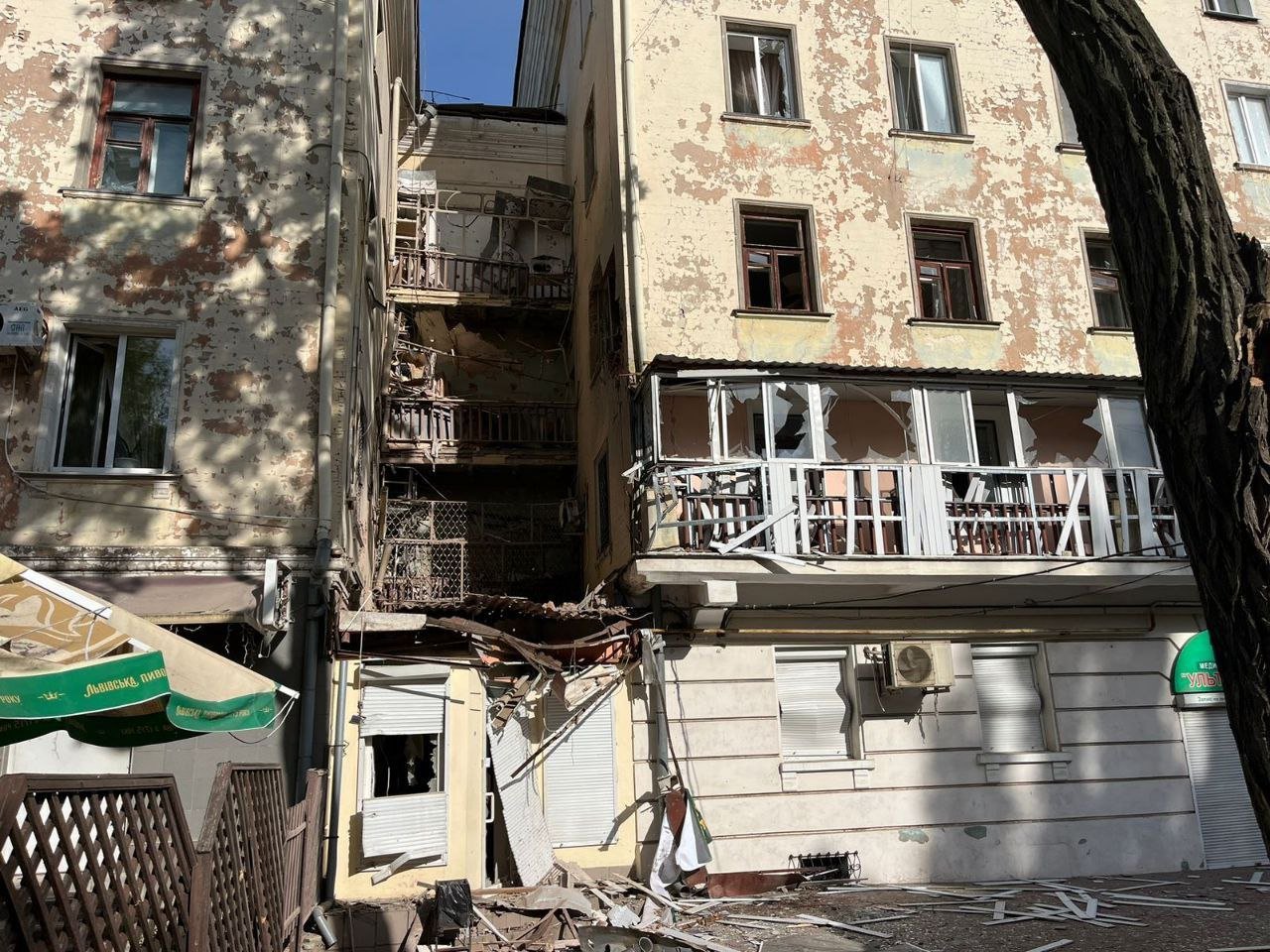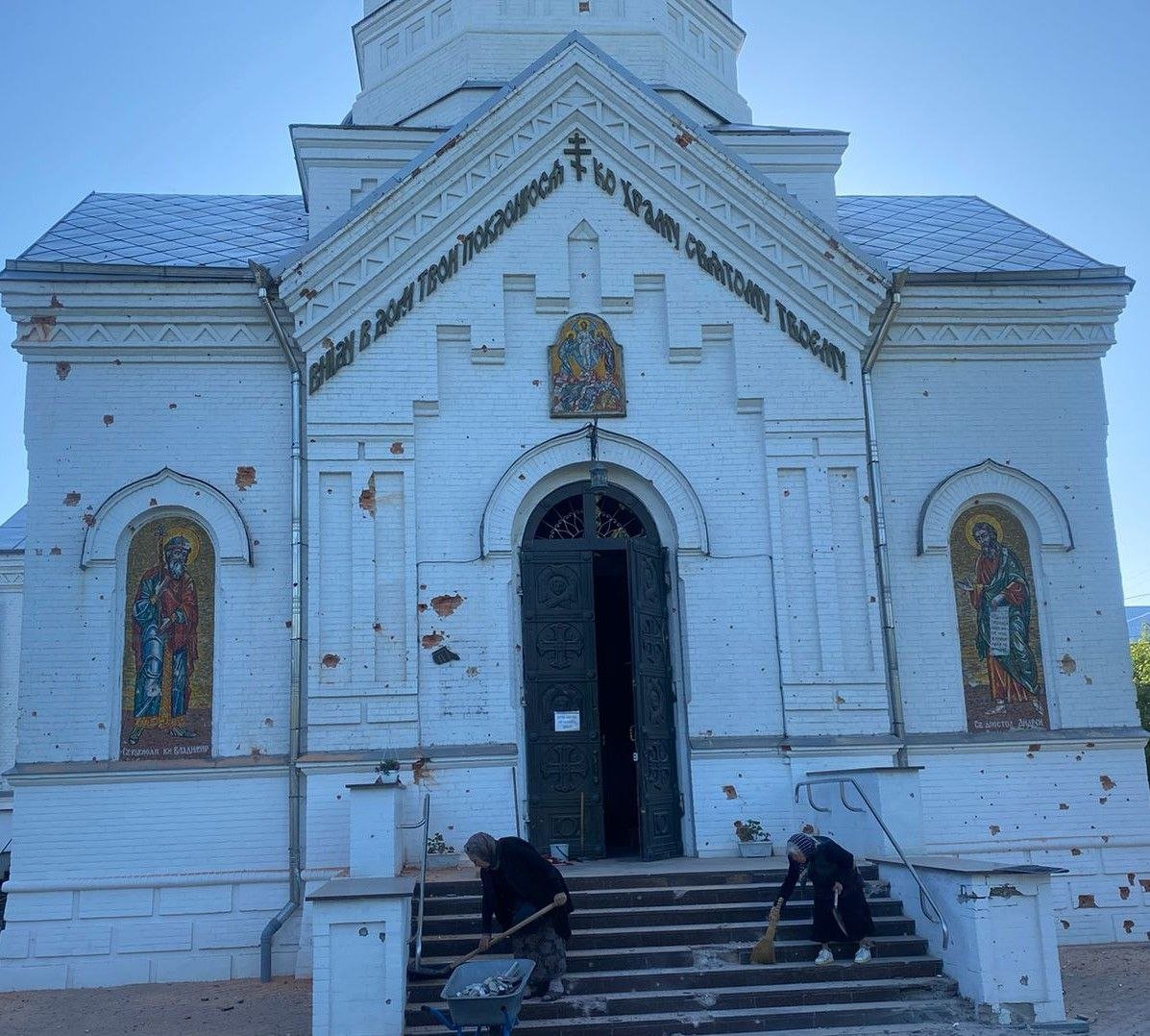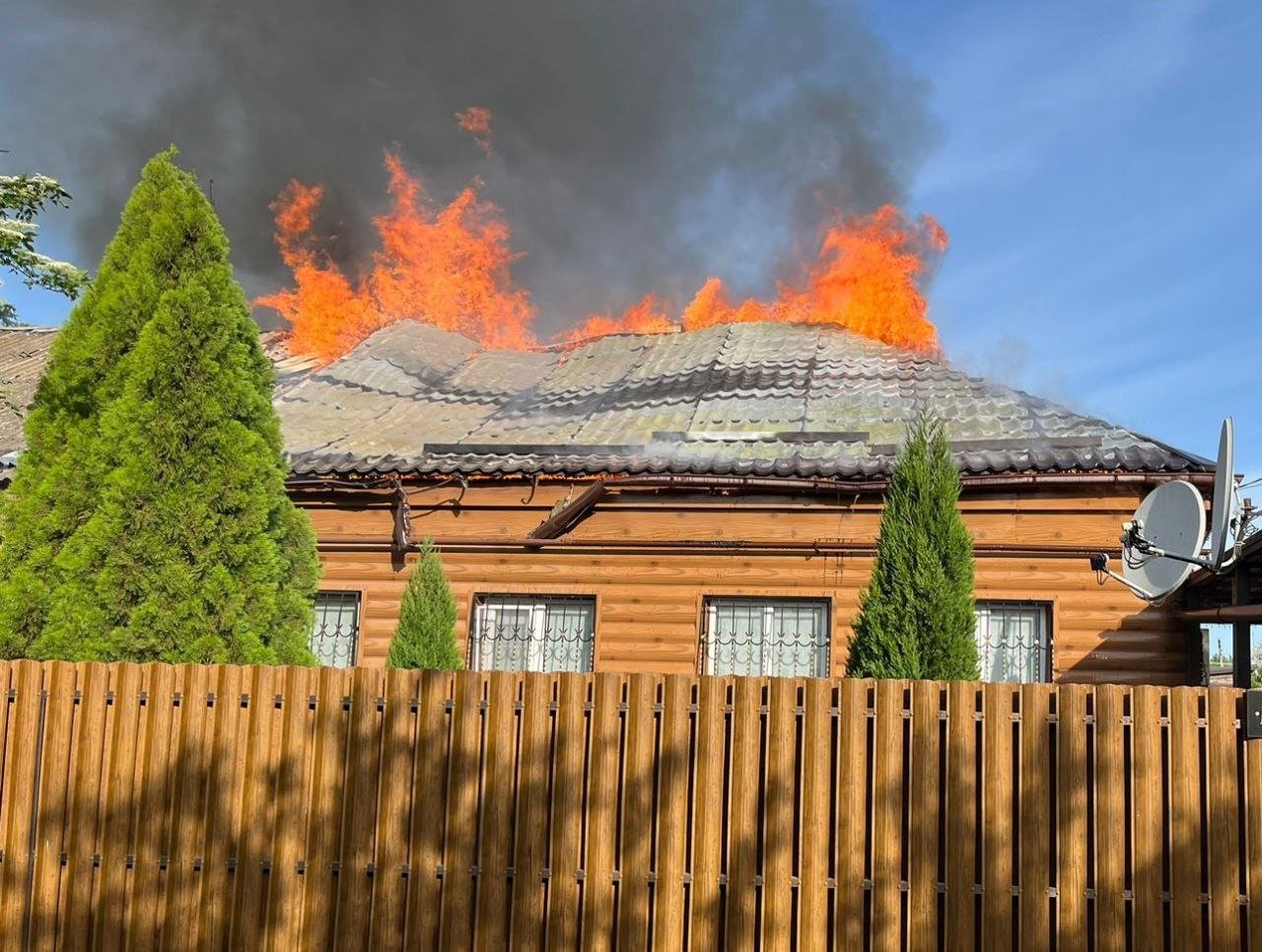For two years, russian army has been shelling Nikopol every day, but locals try to live their lives as usual
On 9 May, at 7 am, I woke up to a loud explosion that shook the whole house. The night before Orthodox Easter, I couldn't sleep — I was tossing and turning from the sounds outside. A "Shahed" was flying by, and ukrainian soldiers tried to shoot it down. And every day, I would shudder from the explosions of artillery shells. This is how I remember my six days in Nikopol.
On 1 July 2022, the first shell hit the city, and since then, russian army continue to terrorise the city almost every day.
Funeral services at a low cost
When you drive up to Nikopol from the village of Kamianske, you are greeted by acacia blossoms, the silhouette of the Zaporizhzhia nuclear power plant on the horizon, and the words "Funeral services at a low cost" on a giant billboard. I don't know if this inspiring advertisement appeared here during the full-scale invasion or before. Still, it is indeed appropriate for the entrance to a city where civilians are constantly dying from Russian brutality.
It is five kilometers from Nikopol to the occupied territory and twelve kilometers to the aforementioned Zaporizhzhia nuclear power plant, which the Russians seized. This town used to be protected from the Russian military by the Kakhovka Reservoir, but after the occupiers blew up the Kakhovska dam, the water receded. Now, Nikopol is separated from the enemy by the bottom of the former reservoir, the Dnipro in its "pre-Soviet" bed, and several other rivers.
Although the Russians probably have no plans to capture Nikopol, they terrorize civilians in this city daily — the Russian army shells the town with artillery and targets FPV drones. You can constantly hear the sounds of war on the street: sirens wailing to warn the citizens of an artillery attack or air raid threat, shells coming out of the rocket launchers, explosions, and the buzzing of Shaheds and FPV drones.
HERE, AN ALARM WARNS OF A POSSIBLE ARTILLERY ATTACK
Nikopol and its neighboring communities are quite unique in Ukraine because they have an alarm warning of a possible artillery attack. Local authorities, the Ukrainian military, and guerrillas in the occupied territories have created a system that allows them to warn of impending attacks. To do this, they monitor the activity of enemy equipment on the occupied territory.
If, for example, the Russians deployed a multiple rocket launcher "Grad" in occupied Kamianka-Dniprovska, from which Russians usually shell Nikopol, the city will raise an alarm warning of a possible artillery attack.
There are more hours in a day with an alarm than without it. But it still doesn't save locals from the threat. One day, I was waiting for the alarm to end so that I could go to the store. When it finally did, I was just about to leave, but thankfully, I stayed in the house for a little longer because the shelling started outside. This happens when the Russians close their rocket launchers in one place (and the alarm goes off in the city accordingly) and at the same time start shelling from another launcher that the Ukrainian military did not notice.
When artillery shelling begins, it is crucial to stay indoors because during sporadic shelling, as in Nikopol, shrapnel is the most dangerous.
9 May
However, even if the alarms always warned of danger, people had to ignore them because sometimes the threat of artillery shelling could last almost all day. Russians often shell the city when people are going to work or returning home. It is simply impossible to wait out the shelling during these hours because many people in Nikopol work in shifts at factories, so they have to come to work on time.
I saw such a shelling on 9 May. I woke up at seven in the morning from several powerful explosions. I heard the glass rattling, and I was so scared and sleepy I thought the windows had shattered. At that moment, I was bewildered, and my boyfriend took me by the hand to the basement. The shelling lasted for more than half an hour.
Some shells fell very close to our house, and some further away — it was clear from the sounds. The Russians were shelling the whole city. Some shells flew so closely to the house that I could hear their whistle — short, high, and unpleasant. I could easily distinguish the deaf launch of a shell, its whistle, and the final explosion — a hit.
All city residential areas were shelled for the first time in many days. I was sitting in the basement and thinking: why? And then I looked at my phone screen and saw the date — 9 May, the sacred Victory Day for Russians. What an interesting way to celebrate the once-longed-for end of the war — by shelling the civilians.
The shell that woke me up at seven a.m. hit 300 meters from the house where I was sleeping. It was a residential building that I had photographed intact three days before. Needless to say, there were no military objects there.

Training on minibuses
While I was sitting in the basement, people were dying on the other side of the city. But I didn't know it yet. It was only a few hours after we left the basement that I learned that an elderly couple had been killed in the shelling. The locals said they had gone out to work in their garden. They woke up early to finish the work before the sun reached its zenith and would be scorching.
No one else died during my trip. However, 18 people were injured by shelling and FPV drone attacks. A six-year-old girl is among the wounded. On the eve of the Orthodox Easter, the occupiers damaged the church. The night before the holiday, they launched "Shaheds," which kept me awake, and in the morning, when people were going to church, they shelled the city.

On 7 May, I saw a photo of a damaged white minibus in the daily news summary. A local told me that a week before, the Russians claimed on one of their telegram channels that the Ukrainian Armed Forces allegedly used the white minibusses in Nikopol, so they were legitimate military targets for them. After that announcement, Russians hit a few white minibusses in Nikopol with kamikaze drones. But there were only civilians in them — locals take these buses several times daily to leave Nikopol bus station and head to Dnipro.
Earlier, a representative of "Kvertus", a company that produces electronic warfare equipment, said that Russians were using Nikopol as a training ground for their military: "We were approached by the mayor of frontline Nikopol and told that the Russians were training their FPV drone operators to strike civilian infrastructure."

But despite all the danger, many people stay in the city. The threat of poverty and living in a different community that may not understand you and start judging you are more frightening than regular shelling to some people.
People get used to it; the danger is dulled and becomes routine. Here's a typical story: "My friend made an appointment for a manicure, and shortly before her appointment, the shelling started. But she went outside anyway because many nail technicians and hairstylists have left the city, so it is complicated to find a free slot for a manicure, haircut, or hair coloring."
Small joys
Despite the constant fear and anxiety, life in Nikopol is full of small joys. There are cafes and restaurants here, and the assortment in some shops has hardly changed. Even during times of air raids and shelling alarms, taxis run. Once, I called a cab with my boyfriend to buy wine from the supermarket. Then, the alarm and artillery shelling started, but the taxi fare did not change, and the driver spoke to us politely all the way without a single note of panic in his voice.
ARTILLERY SHELLING STARTED, BUT THE PRICE OF A TAXI DID NOT CHANGE
Even during the war, the locals feel pleasant changes. Last summer, after the Kakhovka dam was blown up, the city was left without water. I came here shortly after the hydroelectric power station was blown up — it was 30 degrees in the city, but there was no water, the city was filled with a smell of dead fish, and the shelling did not stop. In a few weeks, the water supply was restored, and all the problems (except for the shelling, of course) disappeared.
In a war zone, you must always listen — it's a way to survive. But when you're constantly alert, you can hear more than just the sound of shells. There are few cars in the city, so while walking, you can listen to the wind blowing, Easter bells ringing in the church, birds singing, steps of someone walking on the asphalt covered with fluff and acacia blossoms, which for some reason bloomed earlier this year. There are so many acacias in bloom in the south that it seems as if the streets are covered with snow, and on non-windy days, everything is filled with the sweet smell of flowers.
Many Nikopol residents live in private houses, so there are a lot of small entrepreneurs in the city who grow vegetables and fruits in their gardens. During my trip, for the first time in a year, I tasted a proper salad made from fresh and tasty vegetables we bought from local residents. This is a very nice bonus for someone who lives in a big city and never has time to go to the market.
This article was originally written in Ukrainian. It has been translated into English using AI tools such as DeepL, ChatGPT, and Grammarly. If you encounter an error that requires immediate attention, please inform us via Facebook, Twitter, or Instagram. Your understanding and support are appreciated.

